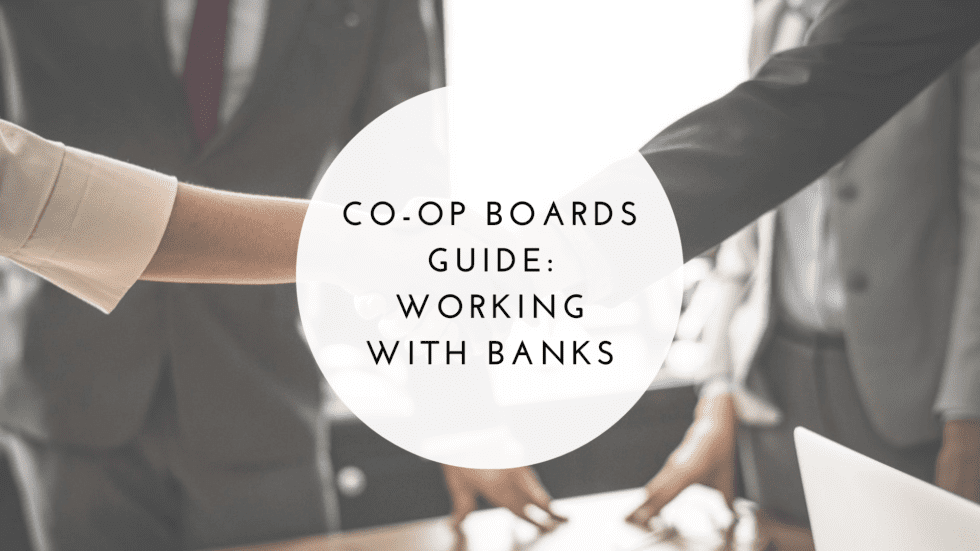
The relationship your co-op board has with banks and other financial institutions will have a direct impact on the success of your community and your ability to attract new owners to your building. When someone applies for a mortgage, the building is going to undergo almost as much scrutiny as the potential buyer.
The key to getting the right loans and the right buyers is your property management company. If you’re working with someone who understands the hyper-local requirements for New York City co-ops and has excellent relationships with the financial institutions that can help you, you’ll find you have a much better experience when it comes to working with banks.
Here are some of the most important things to consider about financing and banking relationships.
Look for Banks with Co-op Experts on Staff
The financing and reporting requirements for co-op buildings in New York City are unique and complex. You’ll need a bank with experts who understand the specific challenges and concerns that co-op and condo buildings will have when it comes to banking, lending, and transparency.
Your bank will also need to understand the difference between co-op financial management and condo financial management. The differences are subtle; for example, co-ops can access a long term fixed rate for their mortgage. But a condo association does not own real estate, so that community or building cannot be used as collateral.
Most of the banks that do have these experts already have relationships in place with New York property management companies. A good property management firm is likely to be a much larger client for the bank than a single co-op or condo building. So, you’re leveraging the power and size of the management company you hire when you’re seeking the banking services you need.
Types of Accounts Used by New York City Co-ops
The size of your co-op will likely dictate how many accounts are needed. Generally, there are four different types of bank accounts that are most often used.
- The operating checking account is pretty basic and it’s not unique to co-ops. This is the account you use for most of your accounts payable.
- A reserve account is the best place to set aside money that is collected for capital items and major renovations.
- A general savings account is also a good idea. The co-op can keep any extra money there and transfer it easily to the operating account as necessary.
- Finally, you’ll need an escrow account, which is most often used for security-deposits that are deposited by new residents.
The need for each account and the size of its balance will vary depending on your co-op and its members. This is why a good banking and property management relationship is so critical; you’re going to count on their guidance and financial expertise.
When it comes to accessing loans and funding from your bank, a poorly managed co-op is going to suffer. Banks will hesitate to lend money to your building or to new buyers trying to join.
 Make sure you’re working with the right financial partners and property management partners. Contact us for more information. Harlem Property Management is the authority on co-op and condo building management in Upper Manhattan and a member of the Real Estate Board of New York. We specialize in managing condos, co-ops, and multi-family buildings up to 99 units.
Make sure you’re working with the right financial partners and property management partners. Contact us for more information. Harlem Property Management is the authority on co-op and condo building management in Upper Manhattan and a member of the Real Estate Board of New York. We specialize in managing condos, co-ops, and multi-family buildings up to 99 units.
